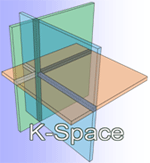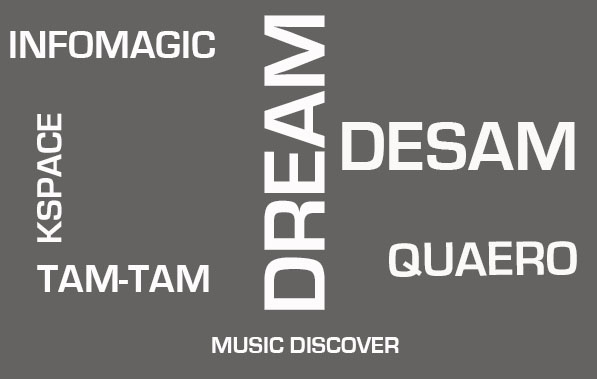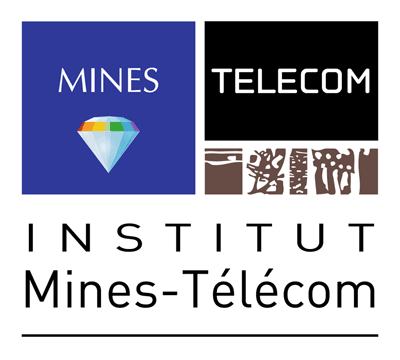ROLAND BADEAU

INFOM@GIC
2006-2009
The infom@gic project merges some technologies developed in Île-de-France, in the field of knowledge engineering and information analysis. The purpose of this project is to study and propose software prototypes of advanced functions for multi-modal analysis of digital data, at scales ranging from a single computer to the Internet network, for industrial applications as well as general public applications.

K-Space
2006-2009
K-Space aims at:
- Creating tools and methodologies for low-level signal processing, object segmentation, audio processing, text analysis, and audiovisual content structuring and description.
- Building a multimedia ontology infrastructure, analyse and enhance knowledge acquisition from multimedia content, knowledge-assisted multimedia analysis, context based multimedia mining and intelligent exploitation of user relevance feedback.
- Creating a knowledge representation for multimedia, distributed semantic management of multimedia data, semantics-based interaction with multimedia and multimodal media analysis.
- Building an open and expandable framework for collaborative research on knowledge acquisition based on system made up of flexible, modular and interconnected technology.

TAM-TAM
2007
This project focuses on the automatic transcription of piano music. It merges the contributions and skills of two teams of Institut Mines-Télécom: the Audio, Acoustics and Waves group of the Signal and Image Processing Department of Télécom ParisTech, and the Mobile Communications Department of EURECOM.
DReaM
Since 2009
This project focuses on the scientific and technical development of a new technology in the field of audio signal processing, which permits the listener of a stereophonic music recording (two channels, left and right) to separate the various voices and instruments in the auditory scene during its playback, in order to manipulate them separately (e.g. change the volume, location, timber, pitch, etc.). This is called active listening, an approach of musical listening which meets the increasing desire of the listeners for interaction. The proposed technology is fully compatible with the audio CD standard, which paves the way for a significant market, both at the national and international levels. It will permit an efficient separation of many instruments from the two stereo channels, which still represents a major scientific challenge today.


DESAM
2006-2010
This project focuses on automatic indexing and audio signal processing of music signals. The important volume and the fast development of multimedia data restrict their accessibility and thus reveals a strong need for new effective methods of indexing, classification and content-based access. Applied to musical signals, automatic indexing aims at extracting descriptors which permit the determination of the original score, the genre of the musical piece, the style of the artist, a signature of the work, etc. Nevertheless, although promising results were obtained in many fields of audio signal indexing, the state of the art is far from a complete representation of musical information.

QUAERO
Since 2008
Quaero is a program promoting research and industrial innovation on technologies for automatic analysis and classification of multimedia and multilingual documents.
The partners collaborate on research and the realisation of advanced demonstrators and prototypes of innovating applications and services for access and usage of multimedia information, such as spoken language, images, video and music.
The program fosters strong synergies between participating industrial partners and research organisations. Demonstrators and prototypes allow evaluating the market readiness and technological maturity of the research and development results. Feedback from the evaluation is taken into account for establishing and adjusting the research and development priorities.

MUSIC DISCOVER
2004-2007
The increase in recordings and the speed of networks makes continual access to music essential today. In other words, a structured description by melody, genre/style, rhythm, instrumentation, musical structure, or harmony. This collaboration between IRCAM, LTCI/ENST and LIRIS, supported by the ACI-Masse de données program, develops different means adapted for users that facilitate the construction and use of a structured description: analysis tools and techniques, indexation, information representation and browsing.
Please click on the name of each project to show more information







